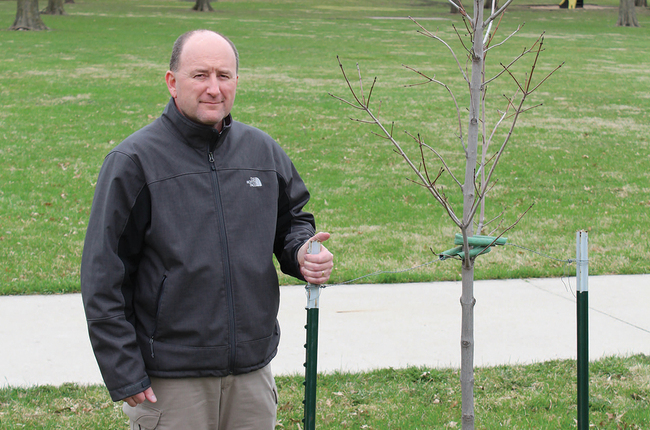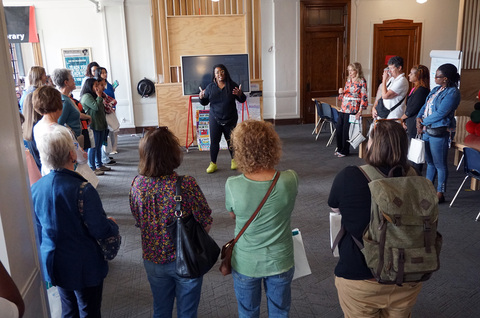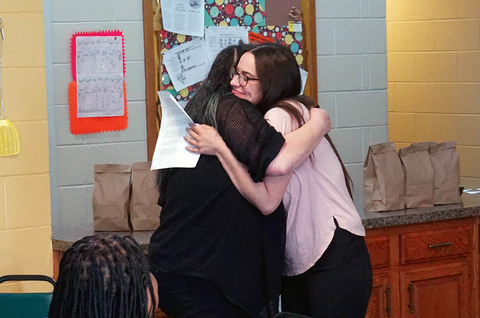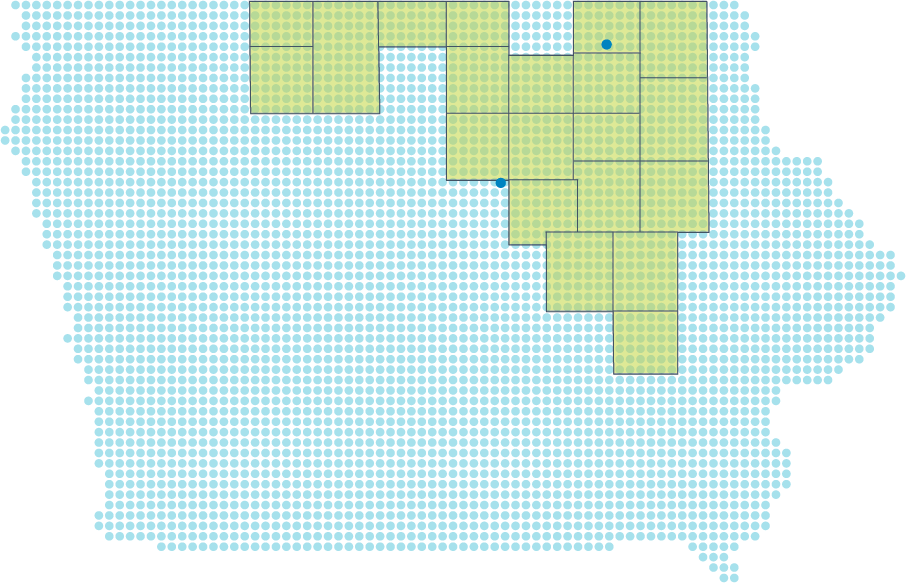
Thriving
CFNEIA
June 1, 2017
Look around Waterloo and throughout the community, you’ll see a city landscape full of trees. To be exact, the City of Waterloo maintains 25,000 publicly-owned trees between streets and sidewalks and in 52 parks and three golf courses.
Unfortunately, according to Todd Derifield, city forester for the City of Waterloo, 18% of all those trees are ash trees which are being attacked by the emerald ash borer, an invasive insect species killing billions of ash trees internationally. The insect was discovered in Waterloo in January 2014. Since then, the city has removed over 2,100 ash trees and has about 2,500 to go. “After getting some costs on tree plantings, it would be over $2 million to replace all of the trees we are removing. We don’t have that in the budget,” said Todd.
In 2016, the Community Foundation of Northeast Iowa granted $15,000 to help ease the budgetary burden. The grant was made possible by the Young-Magid and the Dick H. and Immy Young Family Funds established over 20 years ago as field of interest endowment funds to benefit Waterloo downtown and residential areas, primarily for tree planting. The Foundation is privileged to fulfill the donors’ intent through the grant. “I can’t even describe how important the grant is to make this replanting possible. It wouldn’t be done without it. Hopefully, we can replant with diversity and not have something like this happen again,” said Todd.
The importance of trees to Waterloo residents cannot be overstated. Trees provide shade, oxygen, and beauty, relieve the community storm sewer system of water runoff, and increase property value. According to Todd, studies have been conducted showing trees can reduce crime simply by improving mood. “There is just an unlimited number of things they provide,” said Todd.
As a Tree City, USA, Waterloo is committed to maintaining tree resources. “We have a city council and mayor who recognize the value of trees and they assign resources to maintain those trees,” said Todd. “To me, having a thriving urban forest means we have a community that cares about our environment where we live and it’s a cool thing.”




